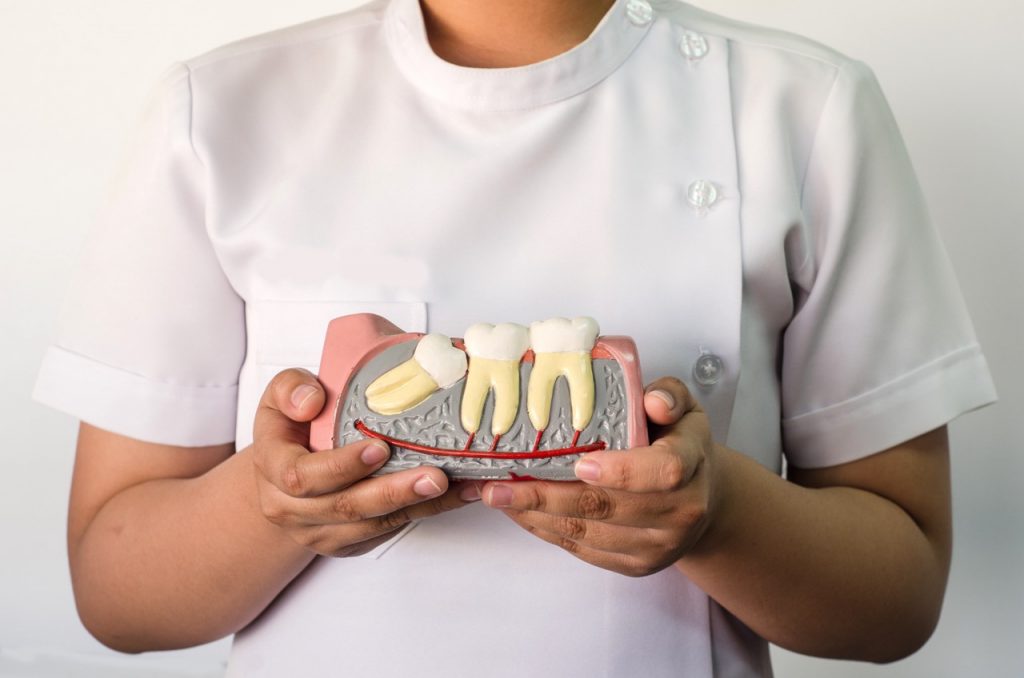Resource Library
Start Reading

A migraine is a severe headache often accompanied by other symptoms such as nausea, sensitivity to light and sound, and visual disturbances. Migraines can be debilitating and significantly impact a person’s quality of life. While the exact cause of migraines is not fully understood, various factors can trigger or contribute to their development.
One factor is the migraine/tooth pain connection. Studies show there is a strong link between dental issues, such as wisdom teeth problems, teeth grinding (bruxism), and temporomandibular joint (TMJ) disorder, and the occurrence of migraines. If you’re experiencing any of these oral health issues, they can contribute to—or even cause—migraines. It’s critical to speak with your dentist to determine if any oral health issues are playing a role. Read further to understand the causes and how dental treatment may help.
 What causes migraine headaches? Common triggers include:
What causes migraine headaches? Common triggers include:
Several oral health conditions could be causing or contributing to migraine pain. The most common include:
Your dentist can play a crucial role in identifying and addressing any oral health issues that may be contributing to your migraine pain. By conducting a thorough examination, including X-rays and possibly other diagnostic tests, your dentist can pinpoint any dental problems that may be causing or exacerbating your migraines.
 Once the underlying dental issues are identified, your dentist can develop a personalized treatment plan to address them. This may include procedures such as:
Once the underlying dental issues are identified, your dentist can develop a personalized treatment plan to address them. This may include procedures such as:
In addition to addressing dental issues, your dentist may also recommend lifestyle changes and preventive measures to help manage your migraines. This could include stress management techniques, dietary changes, improving sleep habits, and avoiding triggers such as caffeine and tobacco.
If you are experiencing migraine tooth pain, it is important to talk to your dentist in addition to your primary healthcare provider. By addressing any underlying dental issues, you may be able to reduce the frequency and intensity of your migraines.
 If you suffer from migraines, it’s important to prioritize your dental health. Seek treatment for any dental issues that may be contributing to your headaches, such as impacted wisdom teeth, teeth grinding, TMJ issues, or oral infections.
If you suffer from migraines, it’s important to prioritize your dental health. Seek treatment for any dental issues that may be contributing to your headaches, such as impacted wisdom teeth, teeth grinding, TMJ issues, or oral infections.
To schedule an appointment at Penn Dental Family Practice, click here or call 215-898-PDFP (7337). Regular visits to the dentist and good oral hygiene habits can help prevent dental problems that may trigger migraines. By taking care of your oral health, you may be able to reduce the frequency and severity of your migraine headaches and get back to living your life without worrying about experiencing a painful migraine.